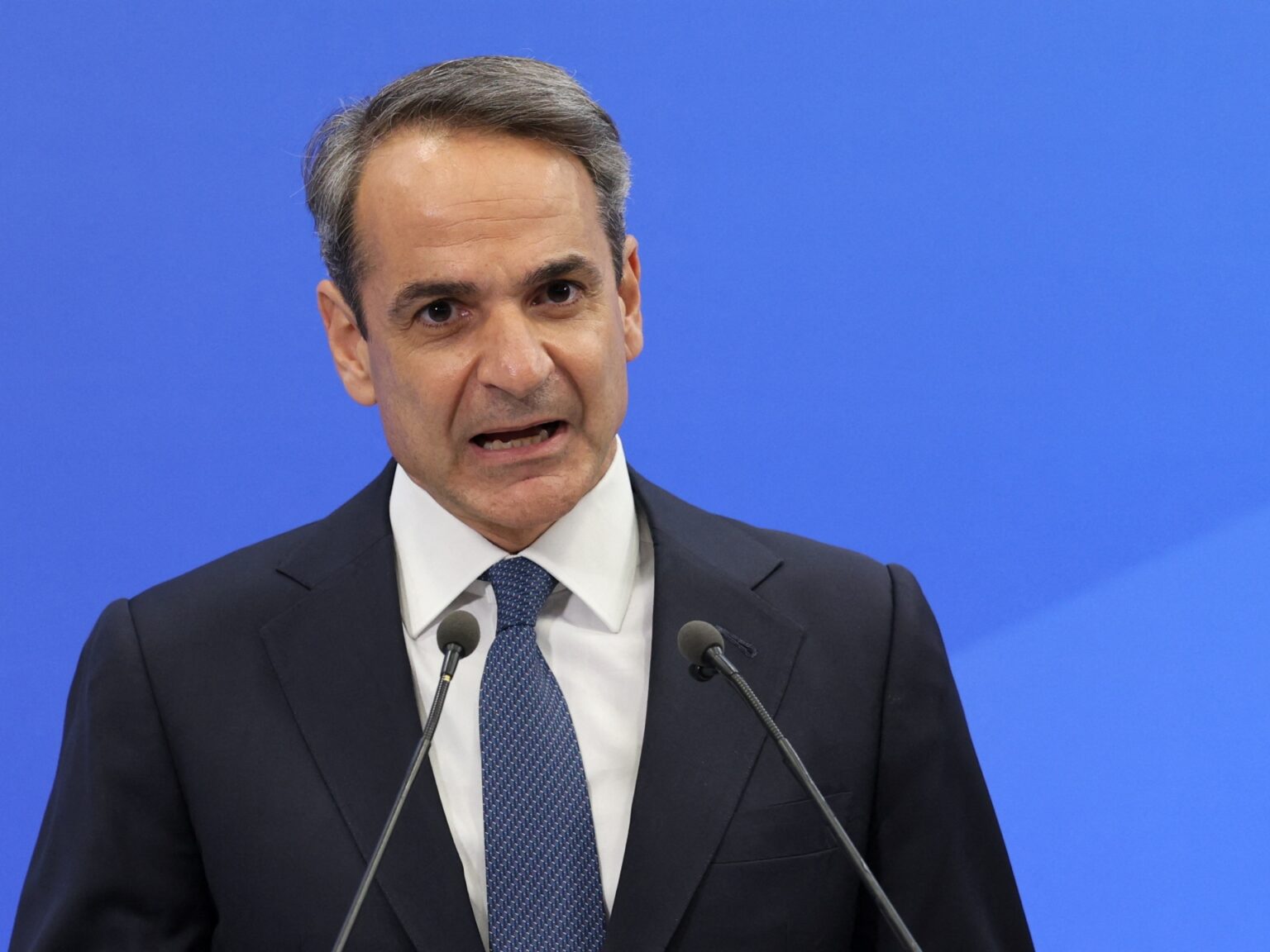Global Courant 2023-05-22 00:56:09
Greece’s ruling New Democracy party won a landslide victory in parliamentary elections, but fell just short of the threshold needed to form a government on its own.
Prime Minister Kyriakos Mitsotakis and his conservative party had a 40.8 percent lead based on more than 90 percent of the votes counted on Sunday night, versus 20.1 percent for the left-wing Syriza party led by Alexis Tsipras.
The Greek Interior Ministry predicted that New Democracy could win 145 seats in parliament, six short of an absolute majority.
“(The exit polls) show a clear victory for the New Democracy and a clear renewal of the mandate to push ahead with the major changes that Greek society is striving for,” said government spokesman Akis Skertsos, as the party began to celebrate its strong performance.
If the full results are confirmed, Sunday’s performance would be a major disappointment for Syriza and a better-than-expected performance for New Democracy.
But as it lacked an outright majority to govern alone, the Conservative party will struggle to form a government without seeking coalition partners and could be forced to call another ballot in a month.
New Democracy indicated that it preferred to strive for a clear victory in a second election and to be able to govern independently.
“We have said that we want to rule outright because that would ensure stability and the way forward. So we have the right to ask that of the Greek people in the next elections,” Public Order Minister Takis Theodorikakos said on Skai television shortly after the polls closed on Sunday night.
The elections were held under a new law of proportional representation, which makes it extremely difficult for a party to win enough parliamentary seats to form a government on its own.
If a runoff election is held, likely in late June or early July, the law will change again, switching to a system that rewards the leading party with bonus seats and makes it easier for it to win a parliamentary majority.
Political withdrawal among young people
University student Petros Apostolakis expressed his dissatisfaction with the exit polls. “I am not very happy (with the results…) In recent years I have seen (the) New Democracy party carry out agendas that have nothing to do with the interests of my generation,” he told Al Jazeera in Athens. , citing climate change and the steep house prices as some of the neglected issues.
George Tzogopoulos, a lecturer at Democritus University of Thrace, told Al Jazeera that young people were dissatisfied with the political class as a whole. “But what happened is they didn’t show up to vote, they took out their anger with demonstrations or through social media (instead),” he said.
“This is how New Democracy has achieved such impressive success,” Tzogopoulos added.
Sunday’s election is the first in Greece since the Greek economy is no longer closely scrutinized by international lenders who provided bailout funds during the country’s nearly decade-long financial crisis.
Mitsotakis, a 55-year-old Harvard-educated former bank executive, won the 2019 election on a promise of business-focused reform and has vowed to continue tax cuts, boost investment and bolster middle-class employment.
Its popularity took a hit after a train disaster on February 28 that killed 57 people after an intercity passenger train was mistakenly put on the same track as an oncoming freight train. It was later revealed that train stations were poorly staffed and the safety infrastructure was broken and outdated.
Thousands of people, many of them university students like the victims of the railway disaster, staged demonstrations in Greek cities to protest what they saw as government negligence.
The government was also beset by a surveillance scandal in which journalists and prominent Greek politicians discovered spyware on their phones. The revelations deepened mistrust between the country’s political parties at a time when consensus may be desperately needed.
Despite this, the Prime Minister was steadily ahead in opinion polls in the run-up to the election.
Tsipras, 48, served as prime minister during some of the crisis’s most tumultuous years. He struggled to regain the broad support he enjoyed when he came to power in 2015 on a pledge to reverse austerity measures imposed by the bailout.
Senior Syriza official Dimitris Papadimoulis, a deputy speaker of the European Parliament, told state television ERT that if the result is confirmed, the result will be “significantly far” from the party’s goals and would represent a failure to bring opposition to collect the government.
The once-dominant Panhellenic Socialist Movement (PASOK) party in Greece is likely to be at the center of all coalition talks. Exit polls have the potential kingmaker between 9.5 and 12.5 percent.
PASOK leader Nikos Androulakis, 44, was at the center of the wiretapping scandal that saw his phone targeted for surveillance.
But Androulakis’ poor relationship with Mitsotakis, whom he accuses of covering up the wiretapping scandal, makes a deal with the Conservatives difficult. His relationship with Tsipras – whom he has accused of extorting PASOK voters – is also bad.
In the run-up to the vote, Androulakis had firmly ruled out partnering with Mitsotakis’ conservatives.








